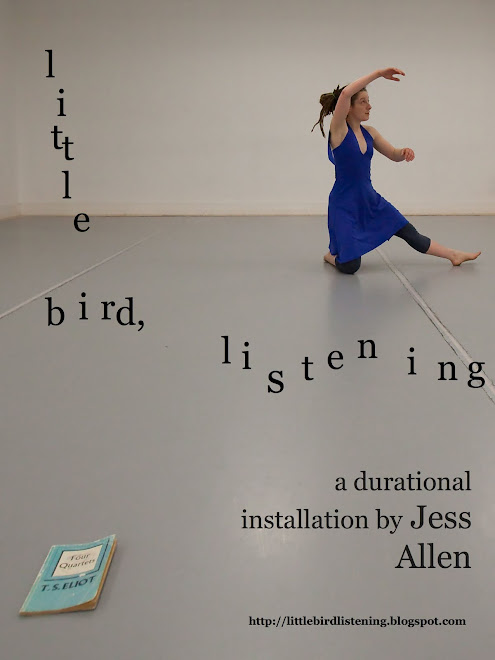Mrs A has reminded me that the last section of East Coker is part of the 'edited highlights' speech she has arranged to be read at her own funeral. This is touching and comic by turns. We laugh at my suggestion that I will now be able to read the whole of the Quartets and perform contemporary dance simultaneously. A marathon of live art for the mourners.
Home is where one starts from. As we grow older
The world becomes stranger, the pattern more complicated
Of dead and living. Not the intense moment
Isolated, with no before or after
But a lifetime burning in every moment
And not the lifetime of one man only
But of old stones that cannot be deciphered
[Old stones? With weird synchronicity I was learning this section when dancing at Pentre Ifan for Cathy with Resondance]
There is a time for the evening under starlight
A time for the evening under lamplight
(The evening with the photograph album).
Love is most nearly itself
When here and now cease to matter.
Old men ought to be explorers
Here or there does not matter
We must be still and still moving
Into another intensity
For a further union, a deeper communion
Through the dark cold and the empty desolation,
The wave cry, the wind cry, the vast waters
Of the petrel and the porpoise. In my end is my beginning.
----------------------
Journey back from Bristol today:
St. Wertburghs to Fownhope in about an hour and three and a bit Quartets...Burnt Norton M5 junctions 15 to 13 (a bit of speeding)
East Coker Junction 13 to 11A (ish)
The Dry Salvages A40 to Highnam and beyond
Little Gidding tailed off before Newent...









